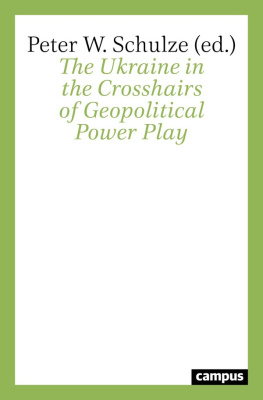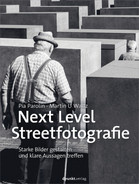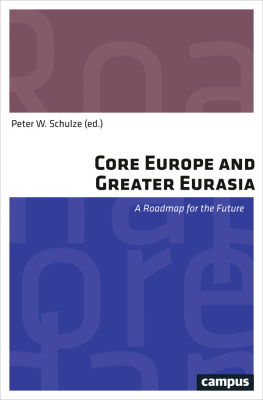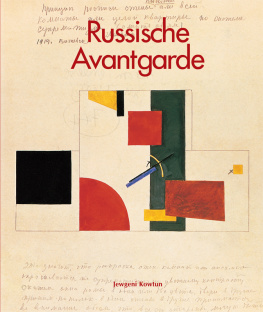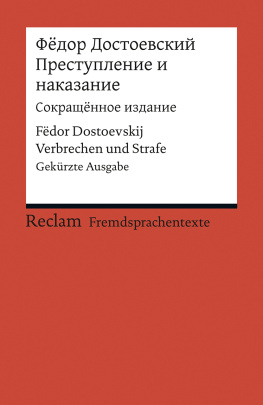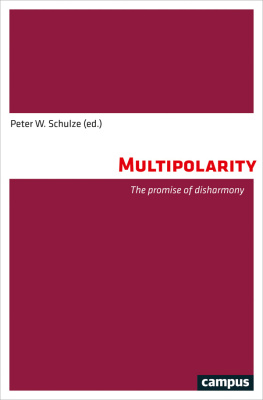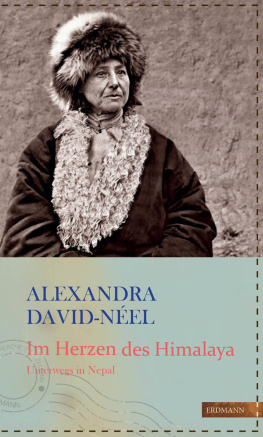Instead of a Foreword
In memoriam Peter W. Schulze
Winfried Veit
In this place, Prof.Peter W. Schulze should have written a foreword for the third book he was releasing with Campus publishers within the last few years. The first two were published under the titles Core Europe and Greater Eurasia and Multipolarity: The Promise of Disharmony in 2017 and 2018 respectively. The present book deals with the Ukraine crisis and the deficiencies of European security. Only weeks before its completion, Peter W. Schulze passed away at the age of 77 after a long illness. His commitment to his manifold projects and activities remained nonetheless strong, until literally the last moment.
The titles of the three books are a demonstration of the broad spectrum of Peters academic and political interests. But that is far from all. During his long academic and professional career, he dealt with many political and geographical issues but always with two main aspects in mind: The construction of a European security architecture and, hand-in-hand with that, the relationship of the European Union with Russia. This did not stem from a purely professional interest; for him, it was a matter of the heart. Given the multiple and profound changes of world order since Peter Schulze started his academic career in the early 1970s, this focus on two of the most fundamental aspects of European policy demonstrates his farsighted view of the world and the role of Europe within it.
After studies in political science at the Free University of Berlin, the London School of Economics and Political Science, and Stanford University, Peter became a research assistant and later an assistant professor in International Relations and Comparative Government at the Free University of Berlin. In 1981, he joined the German Friedrich Ebert Foundation (FES) in its international cooperation branch, for which he worked more than twenty years. He started as a research fellow in its headquarters in Bonn, followed by an assignment at the University of California in Berkeley, where he headed a German-American liaison project focusing on technological and strategic issues. From 1988 to 1992, he acted as director of the FES office in London with an emphasis on German-British relations and European security.
The highlight of his professional career, and at the same time the most challenging part of it, was certainly his assignment in Moscow as head of the FES office in the Russian Federation from 1992 to 2003. In this capacity, Peter not only proved his intellectual, political, and diplomatic skills but became a major mediator of Russian-German relations in the arenas of civil society and academia. He initiated and participated in a number of activities, including the Schlangenbader Gesprche, the Deutsch-Russisches Forum, and the Petersburger Dialog, and he became a trusted interlocutor for both sides.
This was the period when Russia under Boris Yeltsin tumbled towards the abyss and the West misused Russias weakness to expand further east. Peter Schulze, with his vast experience in international relations and his excellent knowledge of Russia (he spoke Russian fluently), already grasped at that time the danger of this development and he became a tireless and increasingly isolated voice warning against a possible backlash in the relationship between Moscow and the West.
When the backlash happened in the course of the first decade of the 21st century, Peter was already back in Germany after 20 years spent abroad. But it was not his way to retire and spend a quiet life together with his Russian wife Olga, away in his country house in the beautiful landscape of Northern German Wendland. On the contrary: Peters involvement in academic and political activities became more tireless than ever as he focused on improving European-Russian relations and trying to help with the (re)establishment of a Common European Security Architecture.
Shortly after returning from Moscow in 2003, he became an honorary professor of Political Science at the Georg August University of Gttingen, teaching International Relations and Russian Studies. He also participated in the activities of the World Public Forum Dialogue of Civilizations and, in 2016, became a co-founder of its successor think tank, the Dialogue of Civilizations Research Institute in Berlin.
At the DOC, Peter W, Schulze continued his dedication to strengthening cooperation and dialogue between Russia and the West by leading a project on East-West relations. Even with relations at an all-time low following the outbreak of the Ukraine crisis, Peter did not lose hope for their normalisation.
His conviction that conflict-resolution in Eastern Ukraine was key to an inclusive and peaceful European security framework led him to establish a working group on the topic that held a series of meetings between 2017 and 2019. The workshops brought together experts from Russia, Ukraine, Germany, France, the UK, and Austria including some of the authors of this book to develop potential solutions and explore flexible rapprochement between the parties to the Normandy Format.
Recommendations emerging from the meetings, held under the Chatham House rule, were informed by principles of mutual understanding, applied to both directly-involved actors and more remote stakeholders, and were shared with policymakers throughout Europe. This book is one of the natural outcomes of Peters work.
In its obituary, the Institute quotes fellow co-founder Vladimir Yakunin as saying, Peter Schulze was a true fighter for peace and dialogue, and the DOC says additionally, Professor Schulze enriched the life of the Institute through his enduring personal commitment. He was a true visionary of peace on the European continent and he tried to shape a lasting peace in Europe for future generations. He was a passionate believer in and supporter of the European Union as the worlds most successful peace project since World War Two.
Peter W. Schulze will leave a void, not only as a leading European academic and intellectual but also as a trusted friend and colleague.
Russia and Ukraine
Four scenarios for the future
Andrey Kortunov
Almost seven years have passed since the start of the dramatic events of the Maidan in Kiev, which engendered a profound crisis in Russias relations with both Ukraine and the West. This is not a short period of time: World War One lasted a little over four years, World War Two dragged on for six years, and only about five years passed between the start of Perestroika and the collapse of the USSR. All wars and crises come to an end, and, as a rule, the more acute the crisis, the faster it moves towards some kind of a resolution. It would appear that in seven years, the future of Russia-Ukraine relations should have taken definite shape, just as the future of Ukraine itself should have done too.

